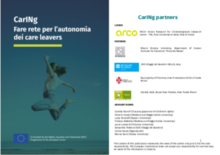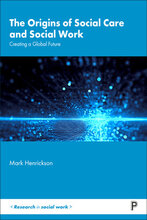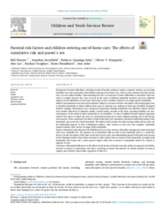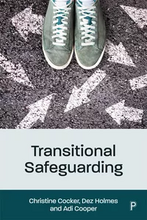Displaying 321 - 330 of 4431
This short paper provides an overview of the existing links between disability and trafficking in human beings, how persons living with disability are affected by trafficking, and to what extent legal standards, policy frameworks, and anti-trafficking measures integrate concerns associated with disabilities.
CarINg aims at helping girls and boys in the alternative care system (care leavers) become protagonists of their own future by making them feel part of a welcoming community.
Disability Rights International, as part of the Global Coalition on Deinstitutionalisation (GC-DI), organized a series of thematic workshop on the UN Guidelines on Deinstitutionalization, including in emergencies.
Bringing together interdisciplinary scholarship, Mark Henrickson argues that it is essential to understand and critique social work’s origins in order to work out what to retain and what must change if we are to achieve the vision of a truly global profession.
This retrospective, national-scale, observational e-cohort study of children entering care in Wales looked at the impact of cumulative risks of parental difficulties on the likelihood of care entry and the impact of the parent's sex.
Niels Peter Rygaard, a leading child psychologist, sheds light on 'missing links' and growth-encouraging assessment methods in this episode of episode of Care Conversations: ICB Podcast. He explores the ways of connecting with children without parental care and ways to make small changes that create a large impact in the world of family strengthening and alternative care.
This book sets out the case for Transitional Safeguarding, a new approach to protection and safeguarding designed to address the needs and behaviours of young people aged 15-24 who are falling between gaps in current global systems, with often devastating results. While the book addressed the gaps in the current system in the UK, the lessons have global application and the authors outlines how the specific needs of young people can be met through this approach.
On the 27th of March 2024, the UN Independent Expert on Albinism held a consultation workshop on ‘Children with Albinism and the Right to a Family Life’ in preparation for her official report to the United Nations General Assembly (UNGA).
In collaboration with the Transforming Children’s Care Collaborative, the UN Independent Expert on Albinism would like to invite you to attend a consultation workshop on ‘Children with Albinism and the Right to a Family Life’ on Wednesday 27th March 2024 at 16:00 East African Time.
Dr. Monisha Nayar Akhtar, a leading child psychologist and psychoanalyst talks to host Dr. Kiran Modi about the support institutionalised children need in the form of a nurturing family unit.





